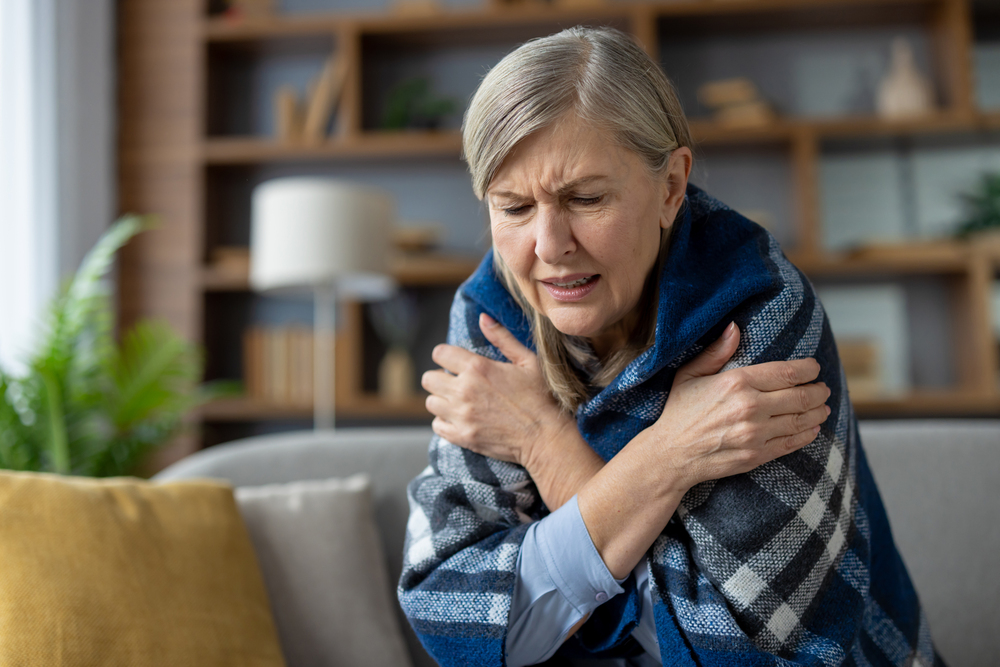The Nursing Home Law Center is committed to providing the legal resources necessary to hold negligent facilities accountable.
Nursing Home Abuse
Older adults face greater challenges as they age, often because of the physical and mental changes they are experiencing. Our bodies decline physically as we age, making us more vulnerable to injuries, illnesses, and other conditions.
Cognitive decline often accompanies aging, making it harder for older individuals to advocate and care for themselves. Mental health challenges also occur with age, most of which are caused by the societal perspective on aging, resulting in isolation.
All these elements contribute to the epidemic of elder abuse nationwide. Vulnerable seniors are more likely to suffer from various forms of abuse, especially in nursing home settings. While these facilities are supposed to take care of this population and provide crucial medical services, abuse and neglect are rampant in the assisted living facility industry.

What Constitutes Elder Abuse in Nursing Homes?
Nursing homes provide essential services for aging adults with medical needs, including assistance with basic needs, medication support, rehabilitation, protection from infection, and comfortable community settings. Any form of mistreatment or neglect in a nursing home may constitute elder abuse.
Abuse violations can come from multiple sources in a nursing home, including nursing staff members, administrators, visiting medical professionals, visiting family members, and other residents. The harm the victim may suffer because of the abuse or neglect could be physical, emotional, financial, or psychological.
Types of Abuse in Assisted Living Facilities
Assisted living residents may face danger from numerous types of nursing home abuse and neglect. Physical abuse, psychological abuse, sexual abuse, financial exploitation, and neglect are the most common forms of abuse suffered by these individuals.
The consequences of these issues can include physical injuries, emotional trauma, loss of dignity, behavioral changes, mental illness, and a declining condition.
Common Forms of Nursing Home Abuse
Nursing home residents are at an increased risk of elder abuse because they rely on others. Since their needs are being met by the staff and facilities at the nursing home, they may be fearful about reporting abuse or neglect in case they experience repercussions. Here are some of the most common types of nursing home abuse cases.
Physical Abuse
Physical elder abuse includes any use of force that can cause physical harm to the nursing home resident. This may involve hitting, slapping, or pushing a resident in an assisted living facility. It could also include the use of inappropriate physical or chemical restraint methods.
The abusers in this scenario are not always nursing home staff members. They can be visitors, family members, outside contractors, or other residents. An older person who is being physically abused in this environment may suffer from bruises, broken bones, and the fearfulness of specific individuals.
Emotional Abuse
When a resident is emotionally abused in a care facility, the impact can be equally devastating. Verbal harassment, shouting, humiliation tactics, and threats could all be considered emotional elder abuse because they are meant to control the behavior of the victim.
A patient who is abused emotionally may see their mental health decline quickly, especially if they feel helpless to advocate for themselves and stop the abuse.
Sexual Abuse
An elderly person in a nursing home setting may also be sexually abused. Sexual assault is a common problem in nursing homes across the country, and the perpetrators could be other residents or staff members.
Unwanted sexual advances, lewd imagery, and unwanted sexual contact may all be considered sexual elder abuse. Abusers must be held accountable to protect the livelihoods of residents.
Financial Exploitation
Financial elder abuse is often overlooked in the nursing home industry. Since the victim may not be suffering direct harm to their physical or mental health, it is easier for perpetrators to get away with this type of exploitation. Typically, these acts are carried out by caregivers or nursing home staff.
The victim may have personal property stolen from their room. A nurse or attendant could use an older person’s credit card to make an unauthorized purchase. In many cases of financial abuse, the victim’s treatment plan or paperwork was changed to impact their finances through coercion or without their knowledge.
Neglect
Often, nursing home abuse does not involve direct action from the perpetrator but inaction. Nursing home neglect is a common cause of resident suffering. If their needs are being ignored, purposely or accidentally, the staff are engaging in negligence.
Perhaps the nurses are not keeping up with the patient’s hygiene practices. A medication mistake could result from laziness or poor communication, significantly harming the victim. Failing to provide adequate care may also be caused by insufficient staffing in the nursing home.
Neglect is a significant issue in senior care facilities that can lead to severe injuries, infections, worsening conditions, or even death.
Signs of Nursing Home Abuse
If a nursing home resident is experiencing elder abuse or neglect and they are incapable of protecting themselves, their families must advocate for them. When you have a loved one living in a nursing home, it is your responsibility to watch for the warning signs of elder abuse in nursing facilities.
Often, the first line of defense against nursing home abuse is an attentive family member. Here are a few warning signs that may indicate your loved one is experiencing abuse and neglect in a nursing home.
Physical Signs
Physical signs are often the easiest to spot if you know what to look for. The most common physical indicators of elder abuse are unexplained injuries, bedsores, and bruises.
Your loved one may have a cast on during a visit, and you cannot get a clear answer about what caused their injury. Bruises on their body may indicate they are falling or being physically abused. Discolorations around their wrists or ankles could be evidence of physical restraints.
Bedsores, also called pressure ulcers, form when there is prolonged pressure and decreased blood flow to a specific body area. Many residents suffer from this condition if they are not being moved or repositioned enough by the staff, especially if they have limited mobility.
Inspect your loved one’s joints and bony areas for pressure ulcers during your visit, as these injuries could escalate and cause serious health complications if untreated.
Emotional Signs
Nursing home abuse and neglect can cause severe emotional damage. The person’s quality of life may be drastically diminished if they are exposed to repeated instances of abuse. In many cases, the resident could develop a mental illness, such as anxiety or depression.
Other consequences of abuse may include fear, withdrawal, or loss of interest in hobbies. If you notice these emotional changes, they may be victims of nursing home abuse and could be in immediate danger.
Behavioral Signs
Older adults who are suffering from abuse will often change their behaviors, both consciously and subconsciously. Your loved one may seem more aggressive than usual or become easily agitated. This could signify elder mistreatment, especially if these behavioral changes are significant departures from their typical attitude.
If you notice these changes, it may be time to file a complaint with the nursing home administrative staff or contact a support resource like the National Council on Aging or Adult Protective Services.
Financial Signs
It is essential to keep track of your loved one’s finances, especially if they struggle with cognitive impairment issues. They may be vulnerable to staff who could take advantage of them.
Watch out for financial irregularities, such as missing valuables, unexplained withdrawals or purchases, and changes to financial documents. In many cases, these actions occur without the resident’s approval.
Legal Rights of Nursing Home Residents
Nursing homes are required by law to uphold certain rights for all residents. Some of these laws come from federal regulations, such as the Nursing Home Reform Act of 1987, while others may come from state governments. Here are a few rights protected by law that may be violated if someone abuses or neglects an elderly patient in a nursing home.
Right to Quality of Care
Residents have the right to receive quality care when staying in nursing homes. If any action or inaction by an individual disrupts that right, they can be held accountable for the victim’s suffering.
Every patient must receive proper medical attention, sufficient hygiene support, assistance with basic living activities, and protection from harm. This includes prevention of infections, abuse, and nursing home neglect.
Right to Dignity and Respect
Medical care is not the only service guaranteed by law in nursing homes. Staff must also respect the residents’ right to dignity and respect.
Decisions about their care should not be made without their input or the consultation of their legal representative. Improper treatment techniques cannot be implemented to control their behaviors, as this compromises their right to self-determination.

The Role of a Nursing Home Injury Lawyer
Seniors face significant risk factors when they move into nursing homes. Whether they have physical or mental medical care needs, they are more vulnerable than most population groups.
As such, they may be exposed to abuse or neglect in care facilities. It is crucial to hold these institutions accountable when they mistreat elderly individuals. This is why experienced nursing home abuse lawyers are essential.
Investigating the Abuse
Lawyers will thoroughly investigate your case when you file a nursing home abuse lawsuit. They do so to gather evidence that supports your claim. It is also necessary for the lawyer to determine what caused the abuse and what legal damages you suffered as a result.
Building a Strong Case
Once you report nursing home abuse and pursue legal action, your attorney will help you build a strong case to increase your chances of winning compensation. They will gather witness statements, assess medical records, consult experts, collect photos or videos, and compile evidence to prove negligence and establish liability.
Negotiating With Insurance Companies
In many severe cases of elder abuse, the plaintiffs must negotiate with insurance companies for fair compensation. A dedicated lawyer knows how to negotiate from a position of strength and use their skills to secure maximum compensation.
Litigating the Case
A lawsuit against a nursing home could eventually lead to a trial. Many cases are settled before a court proceeding is necessary, but if your claim proceeds to litigation, you will need an attorney. This legal professional will protect your rights, explain the legal process, and guide you through the trial to ensure the best possible outcome for your lawsuit.
Secure Expert Legal Help!
The Nursing Home Law Center team specializes in supporting victims of elder abuse and neglect as they pursue legal action against at-fault institutions. We know what it takes to mitigate the risk factors many seniors face when they move into nursing homes, and it starts with holding abusive individuals accountable for their actions.
Whether your loved one is in immediate danger or you merely suspect abuse is occurring, our team of nursing home abuse attorneys is ready to serve your needs.
You likely have questions about the claims process and how to pursue financial compensation for legal damages like medical bills, emotional distress, and physical pain. We offer a free consultation so you can find the answers you need before deciding.
Call 800-926-7565 or complete the online form to request your free case review.

